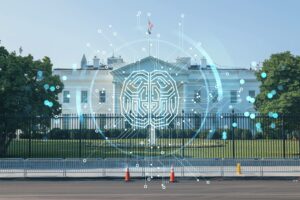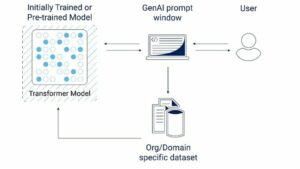
The European Parliament passed the AI Act on Wednesday, the first legislation of its kind in the world, which bans applications imposing an unacceptable level of risk to people’s safety and privacy.
The Act aims to regulate AI applications across four risk levels: unacceptable, high risk, limited risk, and minimal risk. The most harmful products or services are prohibited, and cannot be deployed within the EU.
Such risks include, for example, real-time biometric systems in public spaces, or predictive policing algorithms that profile people or locations based on past criminal activities. Scraping people’s photographs from the internet or CCTV footage to create databases for facial recognition systems has also been prohibited. AI models labelling sensitive personal characteristics – like people’s gender, race, or predicting their religion, sexuality, political orientation – have also been deemed unlawful.
Other unacceptable risk applications include law enforcement using facial recognition – except in cases such as investigation of serious crimes where they have obtained authorization to use the tool. Police and border patrol – along with employers, schools, or universities – cannot deploy emotion recognition systems either. These flavors of AI technologies are considered intrusive, and often perpetuate biases and lead to discriminatory actions. Errors can lead to disastrous outcomes, like arresting an innocent person mistakenly identified by facial recognition cameras.
The high risk tier considers all AI applications that could harm people’s health, safety, rights, or the environment. Although the European Parliament said it would extend to things like social media recommender algorithms – or systems that could influence elections and voter behavior – it’s not clear whether the output of large language models or generative AI like ChatGPT would fall under the definition.
Officials did, however, mention that developers building generative AI systems will have to disclose whether content – including text or images – has been produced by automated tools. Lawmakers believe this will tackle the rising issue of deepfakes and misinformation spread by software like ChatGPT or Midjourney. Companies building these types of tools must also provide detailed documentation of the copyrighted data they used to train their models, and make the reports publicly available.
It’s not all about holding AI back, of course. Co-rapporteur Brando Benifei of Italy explained that the Big Tech developers of AI systems are themselves ringing alarm bells. “We want AI’s positive potential for creativity and productivity to be harnessed,” he said, “but we will also fight to protect our position and counter dangers to our democracies and freedoms.”
To that end, parliamentarians included exemptions for research activities and AI components provided under open source licenses, to boost AI innovation and support SMEs. The law promotes so-called regulatory sandboxes, established by public authorities, to test AI before it is deployed.
Roberta Metsola, president of the European Parliament, declared in a statement: “First of all, technology evolves. Innovation brings us forward and opens up new possibilities and as legislators we need to seize the opportunity. It is about change. It is about understanding that we cannot afford to remain stagnant and about not being afraid of the future.”
“Second, going forward we are going to need constant clear boundaries and limits to artificial intelligence and here there is one thing that we will not compromise on. Anytime technology advances it must go hand in hand with our fundamental rights and democratic values. And finally, we must reconsider how we legislate and think in the face of unlimited access to artificial intelligence because a new age of scrutiny has begun.”
Now that the AI Act has been approved, lawmakers will begin negotiations with the Council of Europe on the final form of the legislation. ®
- SEO Powered Content & PR Distribution. Get Amplified Today.
- EVM Finance. Unified Interface for Decentralized Finance. Access Here.
- Quantum Media Group. IR/PR Amplified. Access Here.
- PlatoAiStream. Web3 Data Intelligence. Knowledge Amplified. Access Here.
- Source: https://go.theregister.com/feed/www.theregister.com/2023/06/15/european_parliament_ai_act/
- :has
- :is
- :not
- :where
- $UP
- 7
- a
- About
- access
- across
- Act
- actions
- activities
- advances
- afraid
- age
- AI
- AI Act
- aims
- alarm
- algorithms
- All
- along
- also
- Although
- an
- and
- applications
- approved
- ARE
- artificial
- artificial intelligence
- AS
- Authorities
- authorization
- Automated
- available
- back
- Bans
- based
- BE
- because
- been
- before
- begin
- begun
- being
- believe
- bells
- biases
- Big
- big tech
- biometric
- boost
- border
- boundaries
- Brings
- Building
- but
- by
- cameras
- CAN
- cannot
- cases
- change
- characteristics
- ChatGPT
- clear
- CO
- Companies
- components
- compromise
- considered
- considers
- constant
- content
- could
- Council
- Counter
- Course
- create
- creativity
- Crimes
- Criminal
- dangers
- data
- databases
- deemed
- deepfakes
- democratic
- deploy
- deployed
- detailed
- developers
- DID
- disastrous
- Disclose
- documentation
- either
- Elections
- employers
- end
- enforcement
- Environment
- Errors
- established
- EU
- Europa
- Europe
- European
- European Parliament
- evolves
- example
- Except
- explained
- extend
- Face
- facial
- facial recognition
- Fall
- fight
- final
- Finally
- First
- For
- form
- Forward
- four
- freedoms
- from
- fundamental
- future
- Gender
- generative
- Generative AI
- Go
- going
- hand
- harm
- harmful
- Have
- he
- Health
- here
- High
- holding
- How
- However
- HTTPS
- identified
- images
- imposing
- in
- include
- included
- Including
- influence
- Innovation
- Intelligence
- Internet
- investigation
- issue
- IT
- Italy
- ITS
- jpg
- Kind
- labelling
- language
- large
- Law
- law enforcement
- lawmakers
- lead
- Legislation
- legislators
- Level
- levels
- licenses
- like
- Limited
- limits
- locations
- make
- Media
- MidJourney
- minimal
- Misinformation
- models
- most
- must
- Need
- negotiations
- New
- obtained
- of
- often
- on
- ONE
- open
- open source
- opens
- Opportunity
- or
- our
- outcomes
- output
- parliament
- passes
- past
- People
- person
- personal
- photographs
- plato
- Plato Data Intelligence
- PlatoData
- Police
- policing
- political
- position
- positive
- possibilities
- potential
- predicting
- president
- privacy
- Produced
- productivity
- Products
- Profile
- promotes
- protect
- provide
- provided
- public
- publicly
- Race
- real-time
- recognition
- reconsider
- Regulate
- regulatory
- religion
- remain
- Reports
- research
- rights
- rising
- Risk
- risks
- s
- Safety
- Said
- sandboxes
- Schools
- Second
- Seize
- sensitive
- serious
- Services
- SMEs
- Social
- social media
- Software
- Source
- spaces
- spread
- Statement
- such
- support
- Systems
- tackle
- tech
- Technologies
- Technology
- test
- that
- The
- The Future
- the Law
- the world
- their
- themselves
- There.
- These
- they
- thing
- things
- think
- this
- tier
- to
- tool
- tools
- Train
- types
- under
- understanding
- Universities
- unlimited
- us
- use
- used
- using
- Values
- want
- we
- Wednesday
- whether
- which
- will
- with
- within
- world
- would
- zephyrnet












